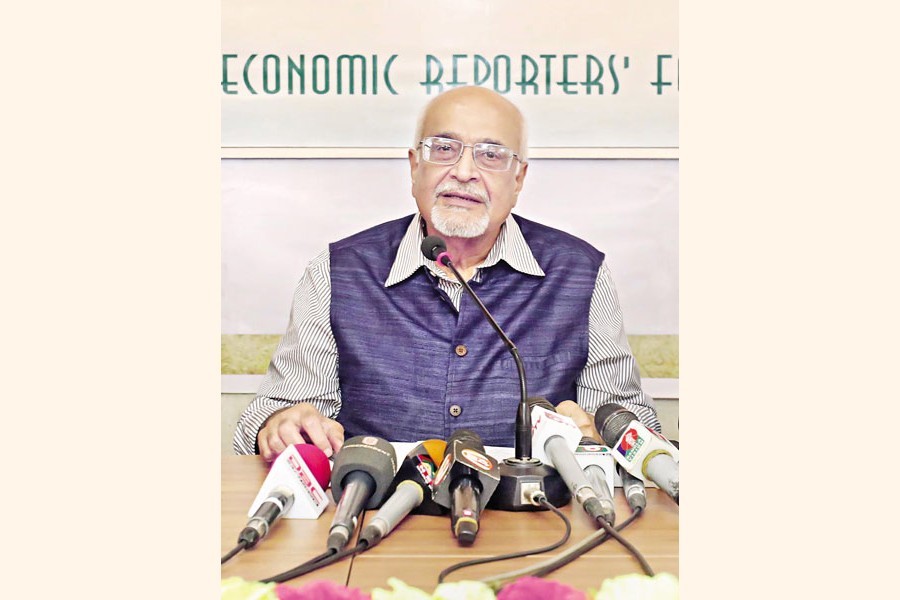Renowned economist Dr. Debapriya Bhattacharya on Tuesday said the country's economy is now facing four clear-cut deviations, including poor private-sector investment.
The other three deviations are poor resource mobilisation by the tax authority, low allocation in health and education sectors, and mistargeting people in selecting beneficiaries of the social safety-net programmes.
Dr. Debapriya, a distinguished fellow at the Centre for Policy Dialogue (CPD), was speaking at the ERF Dialogue, organised by the Economic Reporters Forum (ERF) at its office in the city.
ERF President Sharmeen Rinvy presided over the programme, moderated by its General Secretary S M Rashidul Islam. A number of senior financial journalists also attended the dialogue.
The CPD distinguished fellow said the global recession may extend up to 2024. Its adverse impact may be seen in the country, which can be reduced by strengthening the domestic economy.
He opined that the public sector failed to attract private investment for long, keeping the investment-GDP ratio stagnant at around 23-24 per cent.
No significant foreign direct investment (FDI) came in the country, and it still remains below 1.0 per cent of the GDP.
Dr. Debapriya opined that after the country's graduation, Bangladesh's exports would face many questions in Europe, on issues like good governance and human rights practices in the country.
He noted that due to comparatively lower level of revenue collection, the government has not been able to import food grains, and cannot properly conduct OMS (open market sale) for poor and destitute people amid high rate of inflation.
The government cannot reduce duty and tariff, as it relies on indirect taxes. Following the reliance on VAT and other such indirect taxes, all people are paying.
The CPD distinguished fellow alleged that health and education sectors are not getting the desired level of investment for long, and compared the sectors with the mega projects.
The 20 mega projects have allocations of over 2.0 per cent in terms of the country's GDP. Contrary to it, the education sector has around 1.0 per cent allocation of the GDP, and similar allocation is for the health sector in the annual budgets.
Giving reference to many economies, including Cameroon and Sri Lanka, Dr. Debapriya said the political force has been trying to make a development of physical infrastructure visible in the country to hide political deficits.
He alleged that there has been large-scale discrimination in distribution of social safety net allowances during the COVID-19 pandemic, as it was then proved that getting access to the government services was not easy for weak people.
The noted economist also said there are many examples of looting resources initially in the western capitalist economies.
In the country, many looted resources through development banking channels during the 1980s, like through Shilpa Bank. There are other lootings, took place through the capital market scams in 1996 and 2010.
He highlighted the ongoing looting through allocation of resources by the government to a particular group of people in the form of particular business activities.
The particular individuals or quarters are getting preference from the policy-makers, for which there has been an inadequate flourish of talent-based and international standard human resource in the country.
The CPD distinguished fellow noted that the western capitalist economies, after looting resources, built many institutions there.
But, Bangladesh clearly has lacking in forming such institutions.
"They form quality institutions in their economies as part of introducing fair practices for their interest and for that of the future generations."
"We are lacking formation of such institutions in Bangladesh," he added.


